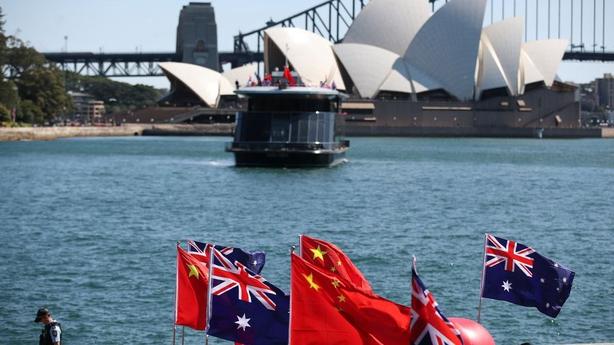 Xiao Qian, Chinese ambassador to Australia. (PHOTO PROVIDED TO CHINA DAILY)
Xiao Qian, Chinese ambassador to Australia. (PHOTO PROVIDED TO CHINA DAILY)
China’s ambassador to Australia Xiao Qian has told the country’s National Press Club that despite recent difficulties in the relationship between Canberra and Beijing, a “reset is still possible”.
In a wide-ranging speech in Canberra on Wednesday, Xiao said in the 50 years since ties were restored, Australia and China had made great achievements in developing bilateral relations.
In recent years however, relations have deteriorated and it is hoped that with the election of a new Labor government in Canberra they will start to improve.
China’s policy of friendship and cooperation towards Australia remains unchanged.
Xiao Qian, China’s ambassador to Australia
“The development of China-Australia relations is at a critical juncture,” Xiao said.
“China’s policy of friendship and cooperation towards Australia remains unchanged.”
He said the economies of China and Australia were “highly complementary” towards each other citing Australia’s long-term stable supply of mineral and energy resources to China and China’s supply of commodities to Australia.
READ MORE: China, Australia take ‘crucial step’
“Such practical cooperation has fostered a close partnership between our two countries. When cooperate we both win. When we don’t, we both lose.”
“It is imperative for the governments of our two countries to adopt positive policies towards each other. Solve differences through consultation and create favorable conditions to better serve mutual cooperation,” said Xiao.
The ambassador said there were many areas in which Australia and China share common interests and continue to cooperate, such as economic development, people’s livelihoods, environmental protection, regional cooperation, climate change and free trade.
“There is a saying that no two leaves are alike,” Xiao said.
 The Chinese and Australian national flags on a celebration event in Sydney, Australia, on Sept 8, 2019. (XINHUA)
The Chinese and Australian national flags on a celebration event in Sydney, Australia, on Sept 8, 2019. (XINHUA)
“China and Australia are different in many respects. In history, culture, religion, development stage and political system.”
“Different as we are there are no areas where we have a fundamental conflict of interest.”
China’s ambassador to Australia Xiao Qian defended China’s recent drills near its Taiwan region, saying the visit to Taiwan by the Speaker of the US House of Representatives Nancy Pelosi was a “serious violation” of the one-China policy and other diplomatic agreements between China and the US
He said it was important for both sides to take a “constructive” approach towards “these differences” and not let then “hijack the relationship between our two countries.”
READ MORE: Australia urged to develop correct perception of China
During questions Xiao defended China’s recent drills near its Taiwan region, saying the visit to Taiwan by the Speaker of the US House of Representatives Nancy Pelosi was a “serious violation” of the one-China policy and other diplomatic agreements between China and the US.
“Speaker Pelosi insisted on visiting Taiwan region in disregard of China’s strong opposition, making it clear to the world it was the US side who first took provocative action to change and undermine the status quo,” Xiao said.
“And it is the US side that should and must take full responsibility for the escalation of tensions in the Taiwan Straits.”
Earlier in the day Australia’s acting prime minister and Defence Minister Richard Marles called for a de-escalation in the Taiwan Straits.
“The more we are seeing drills of this kind, the greater the risk of miscalculation. So, it definitely is a concern and a product of intentions that have escalated,” Marles told the Australian Broadcasting Corporation, or ABC.
Professor James Laurenceson, director of the Australia-China Relations Institute at the University of Technology Sydney described the speech as “diplomatic”.
“Xiao didn’t say anything new. There was no major breakthrough,” said Laurenceson.
“He talked up the relationship. Outlined the difficulties and presented the government’s stand on Taiwan, and reiterated Beijing’s line that it has no intention of building a military base in the Solomon Islands.”
Professor Tim Harcourt, chief economist with the Institute for Public Policy and Governance, or IPPG, University of Technology Sydney, said, “At the end of the day it was all about economics”.
“Australia has things China needs and China has things Australia needs. Economic fundamentals are the basis of the relationship and that will continue to be the case,” he said.


